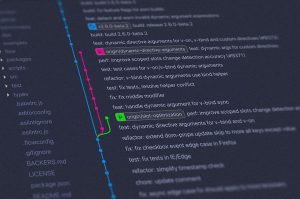Best Answer to “How Do You Acquire Knowledge?” for Job Interviews
5 min read
Picture this: You’re in an interview, things are going great, and then the interviewer hits you with the question, “How do you acquire knowledge?” Suddenly, your mind starts racing—what’s the right way to answer? Do you just say you “Google things”? Relax, we’ve all been there!
In this guide, we’ll help you break down how to answer this question without overthinking it. Whether you’re going for your first job or aiming for a promotion, the way you explain how you learn can really set you apart. Let’s dive in and make sure you walk into that interview feeling confident!
Why Do Employers Ask This Question?

So, why do they even ask this question in the first place? Basically, they want to know how you handle learning new things on the job. It’s their way of checking if you’re someone who can keep up, adapt, and grow. Whether you’re applying for a job in tech, healthcare, or customer service, showing that you know how to stay sharp and learn is a big plus.
The best part? It’s your chance to show that you don’t just go through the motions—you actively work on getting better.
The Struggle is Real: Common Pitfalls with This Question
It’s easy to get tripped up by this question. You don’t want to sound generic, but you also don’t want to give a long-winded answer that confuses the interviewer. Here are some mistakes people often make:
- Overthinking it: You don’t need to give a super complex answer. Keep it simple but meaningful.
- Being too general: Saying “I read books” or “I Google things” doesn’t really give much insight. You need to be specific.
- Not tying it to the job: If your learning habits don’t match the role you’re applying for, the answer might fall flat.
But hey, don’t stress! I’ve got you covered with ways to nail this question.
How to Craft a Strong Answer
The key to answering this question is to be clear, specific, and relatable. Here’s how you can do it:
1. Talk About Your Methods
Think about how you actually learn new things. Do you binge-watch online courses? Maybe you read industry blogs or attend webinars? Whatever it is, give a real example that feels true to how you operate.
2. Tie It to the Job
Let’s say you’re applying for a tech job—mention how you keep up with the latest software or programming languages. If it’s a customer service role, you could talk about learning new communication techniques or conflict resolution.
3. Show Results
Don’t just say you learned something—share how it helped you. Maybe an online course helped you solve a tricky problem at work or made you more efficient. The key is to show how your learning directly benefits your performance.
Example Answers for Different Jobs

Need some inspiration? Here are a few examples that you can tweak to fit your situation:
1. Tech Jobs
“I’m always learning by taking online courses on platforms like Udemy. Recently, I completed a course on cloud computing, which gave me a better understanding of scalable solutions. I also follow tech blogs like TechCrunch to stay updated on industry trends.”
2. Marketing Roles
“I stay current in marketing by reading industry blogs like HubSpot and attending webinars. I recently earned a Google Analytics certification, which has helped me track campaigns more effectively.”
3. Customer Service Jobs
“I love improving my communication skills by attending workshops and webinars. For example, I took a course on conflict resolution, which has helped me handle tough customer interactions more smoothly.”
4. Healthcare Roles
“To stay updated, I attend medical conferences and read peer-reviewed journals. I also recently completed a continuing education course on patient care, which has helped me improve the quality of support I provide.”
Tips to Craft Your Own Answer
Here are some tips to help you create an answer that feels personal and fits the job you’re applying for:
- Do a Little Research: Before the interview, look up the company and the role. Find out what skills or knowledge they value and weave that into your answer.
- Include Both Hard and Soft Skills: Employers want to see that you’re not just learning technical stuff, but also developing communication, leadership, or teamwork skills.
- Keep It Short and Sweet: No need to go on forever. A concise, well-thought-out answer will always hit harder than a long, rambling one.
Common Mistakes to Avoid
While it’s important to be prepared, you also want to steer clear of these common pitfalls:
- Being too vague: Saying, “I read articles” without naming any specific sources makes it sound like you’re not really committed to learning.
- Not Connecting Learning to Your Job: If you’re learning something, explain how it helps you in your work or would help in the role you’re applying for.
- Overloading Your Answer: Keep it focused. Less is more when you’re explaining how you acquire knowledge.
Practice Makes Perfect
Want to sound smooth and confident in your interview? Here’s how to practice your answer:
- Write It Down: Start by jotting down your thoughts. This will help you organize your ideas.
- Say It Out Loud: Practicing out loud helps you hear how it sounds and smooth out any awkward parts.
- Get Feedback: If possible, ask a friend or mentor to listen and give you feedback. They might catch something you missed!
Wrapping It Up: Show You’re Always Ready to Learn
Employers love people who are eager to learn and grow. So when you answer the question, “How do you acquire knowledge?”, show that you’re not just sitting back and waiting for things to happen—you’re actively seeking out ways to improve. Whether it’s through online courses, blogs, or even learning from colleagues, make it clear that you’re constantly growing.
How do you stay on top of learning for your job? Share your tips in the comments below! If this article helped you, pass it along to someone who’s prepping for an interview. And don’t forget to subscribe for more career tips and advice!






